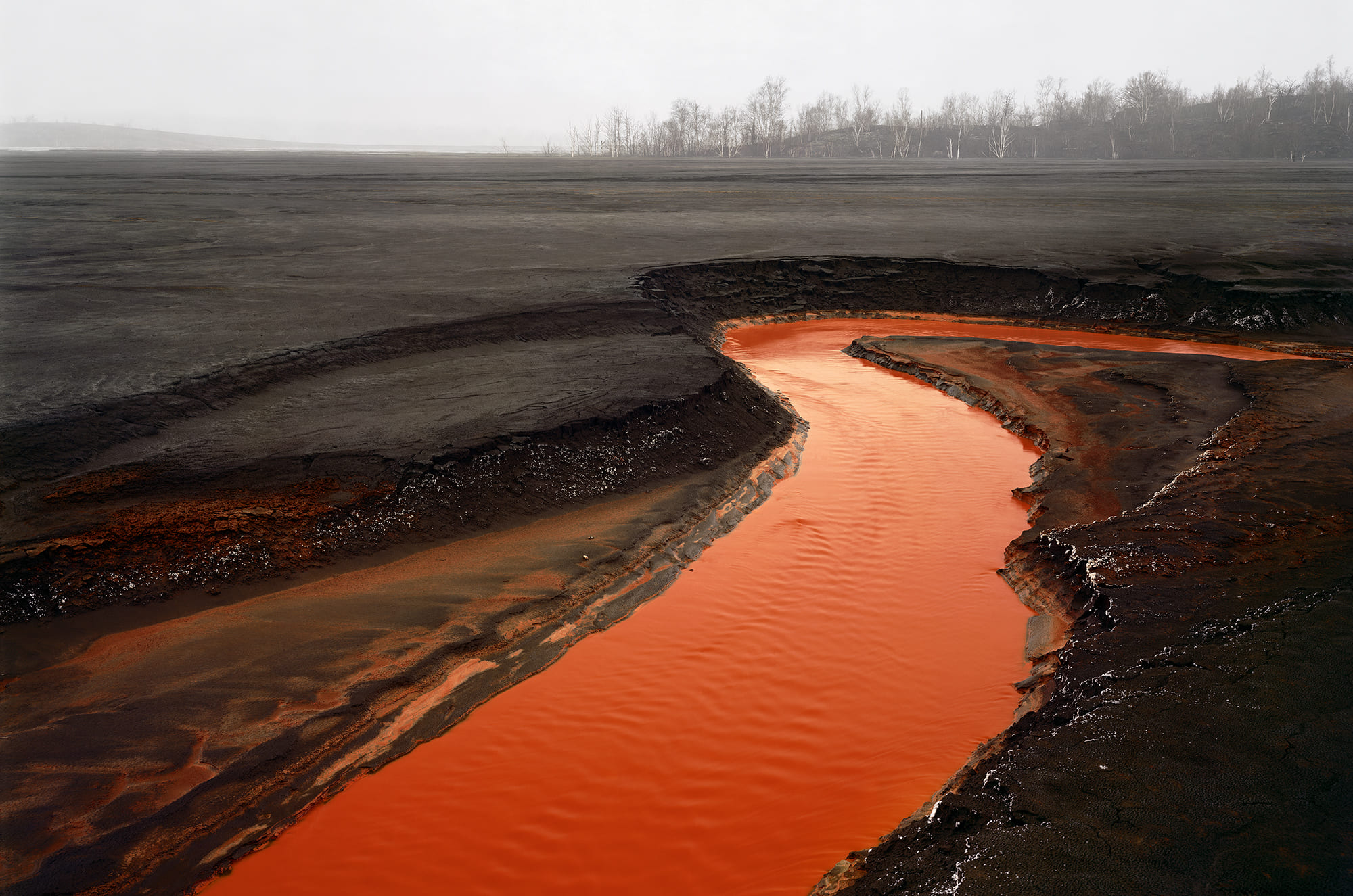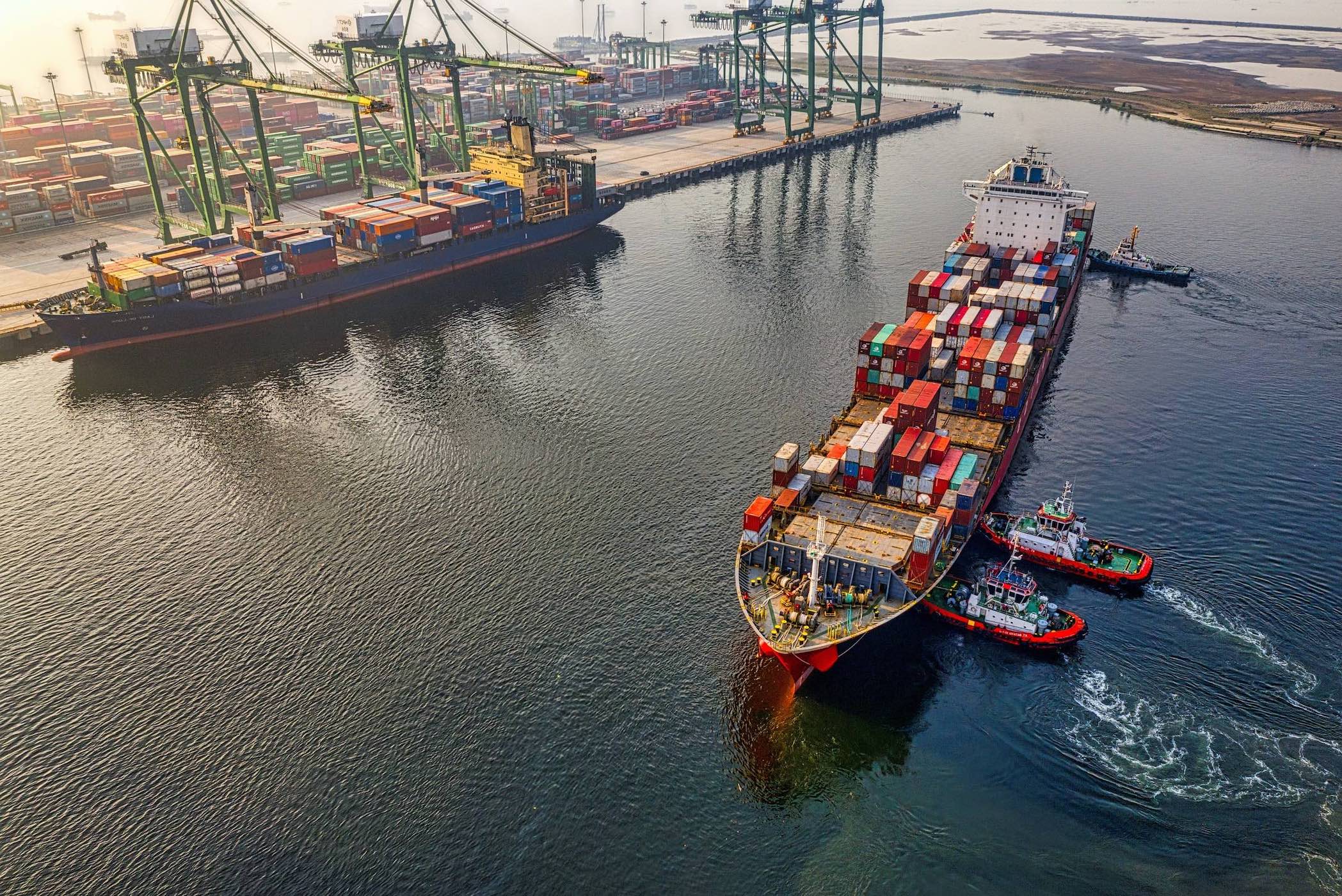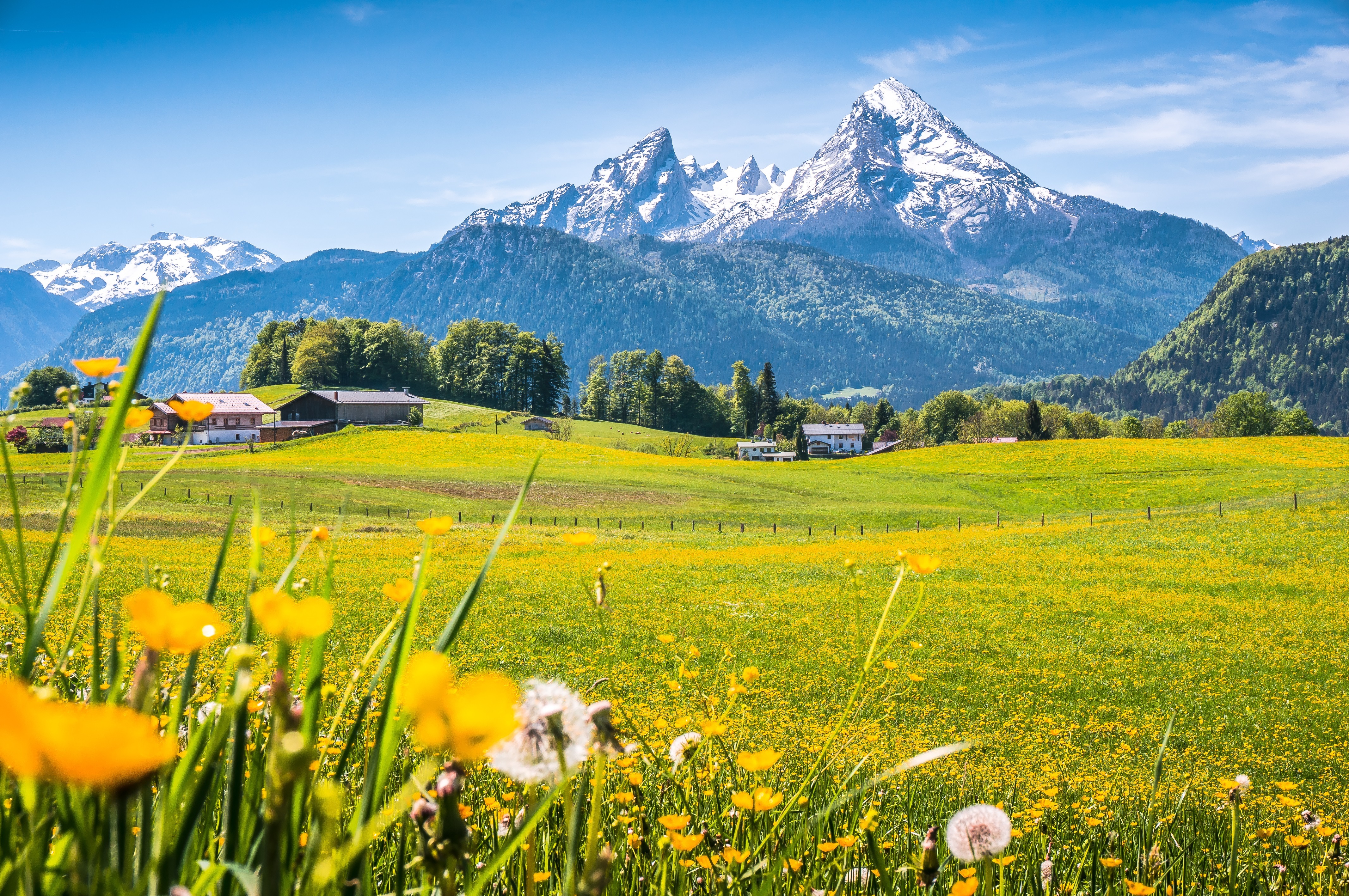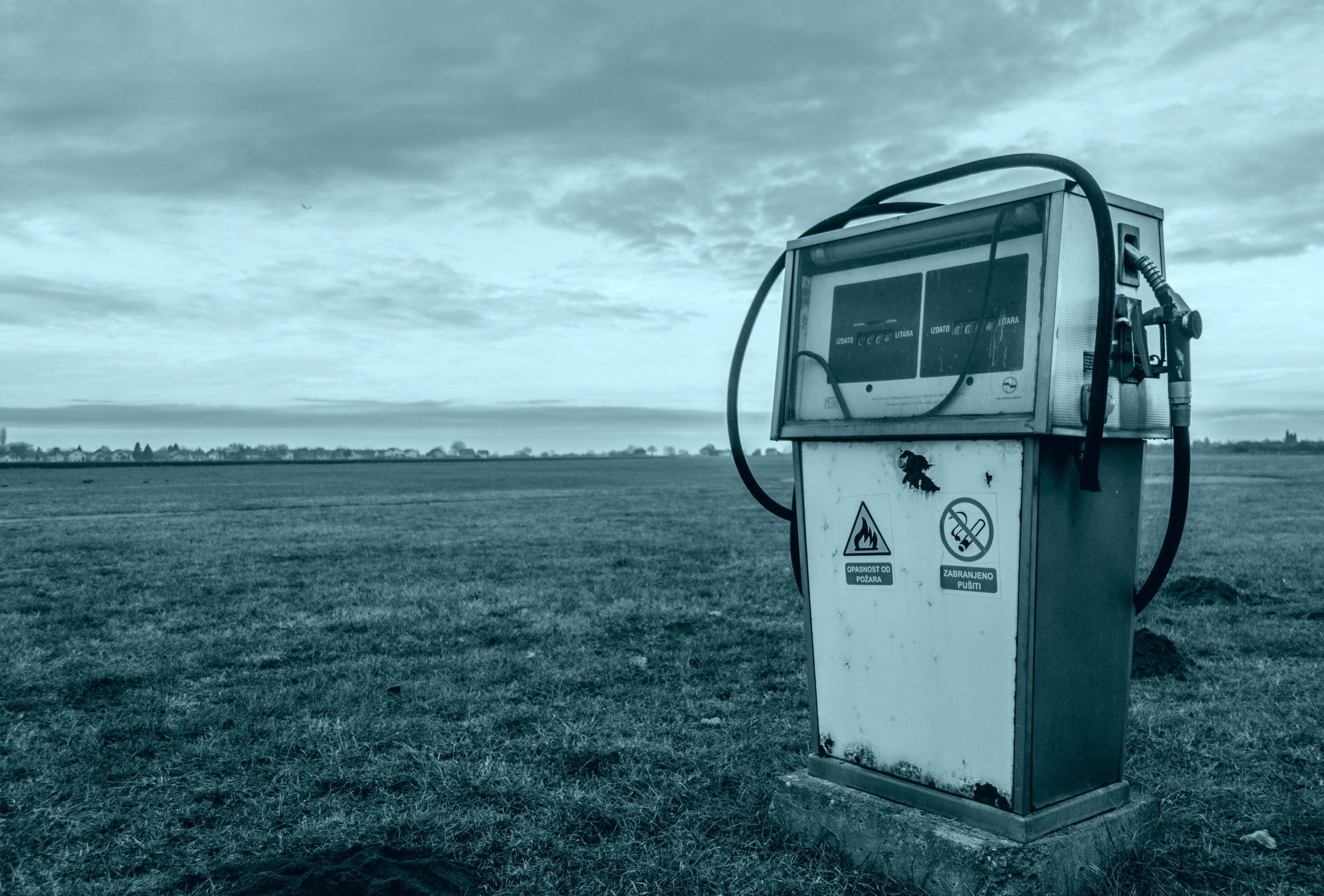The last decade was the hottest on record.
Alarmingly, using this as an introductory sentence is no novelty, this same article written ten years ago would have started with the exact same words. And it would have done so even twenty, and thirty years ago, as each of the latest four decades have been warmer than all the ones coming before them.
Talking about 2019, we are not just going to talk about the last year or the last decade. We are reflecting on the dangerous trajectory we are drawing, the consequences of which are starting to become obvious and physically tangible.
Human pressures on earth systems, and their consequent impacts on climate change, continue to accelerate. GHG concentrations in the atmosphere keep rising. In the last decade, they have risen at a rate of 1.5% per year, stabilizing only briefly during the 2014-2016 period, and there is no sign of GHG emissions peaking in the next few years, according to the Emissions Gap Report 2019.
It’s getting hotter and hotter
2019 was the second warmest year since modern temperature records began according to separate analyses by the World Meteorological Organization (WMO), NASA and Copernicus scientists. Last year’s global average temperatures were second only to those of 2016, but we should consider that 2016 combined climate change trends with a strong El Niño event, which has a warming impact. And the Met Office’s latest predictions for the five-year period between 2020 and 2024 say that it is likely that the current record set in 2016 will be beaten soon.
Each decade from the 1980s has been successively warmer than all the decades that came before. 2019 concludes the warmest ‘cardinal’ decade (those spanning years ending 0-9) in records that stretch back to the mid-19th century.
Dr Colin Morice, Met Office Hadley Centre
Year after year, January after January, we get used to reading announcements of new record-breaking average yearly temperatures. Global warming is accelerating. The five warmest years in the period 1880-2019 have all occurred since 2015, NOAA notes; and nine of the ten warmest years have occurred since 2005.
According to the WMO, in 2019 the global average temperature has increased by 1.1°C since the pre-industrial period (1850-1900) and by 0.2°C compared to 2011-2015. We are more than halfway to exceeding the Paris Agreement goal of keeping the global average temperature rise “well below 2°C”, and very close to the +1.5°C level.
The average rate of temperature growth per decade of the last forty years (+0.18°C) more than doubled the average rate for 1880-2019 (+0.07°C), as shown by the Global Climate Report – Annual 2019 of NOAA.
Source: Carbon Brief
One of the reasons why climate change is so hard to understand – and, consequently, why it struggles to become a top priority both at an individual and at a political level – is that mean temperatures are not local temperatures and global impacts are not local impacts. Sticking to 2019 temperatures, there have been significant regional variations. On the one hand, 2019 was the hottest year in 36 countries and Antarctica. For example, according to Australia’s Climate Statement, 2019 was the country’s driest and warmest year on record, with the annual national mean temperature 1.52°C above average. On the other hand, in North America (and only there) 2019 average temperatures did not rank among the three highest on record, marking the 14th warmest year in the 110-year continental record (source: NOAA).
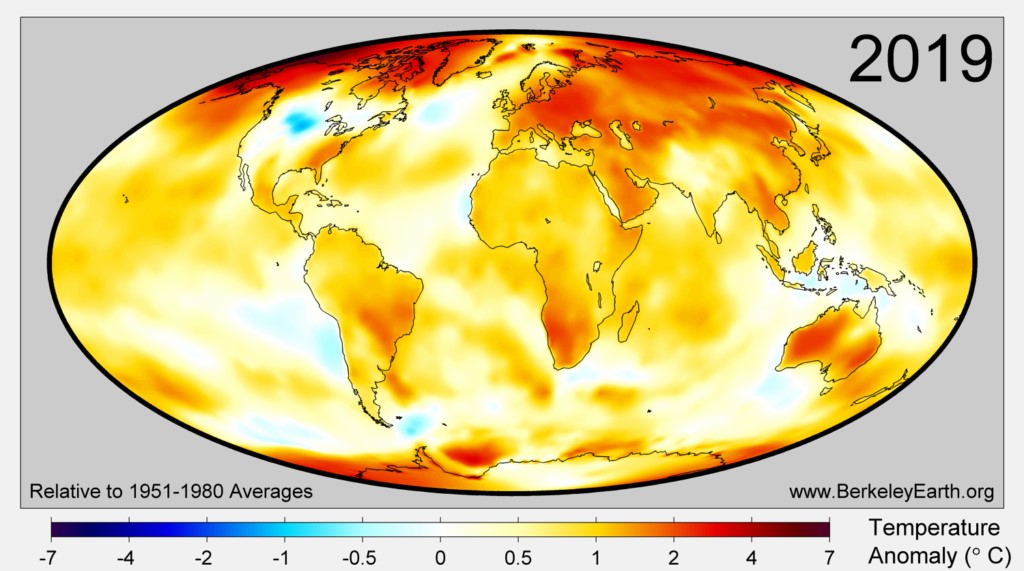
National heat records were set in France (46.0°C on 28 June, 1.9°C above the previous record), Germany (42.6°C), the Netherlands (40.7°C), Belgium (41.8°C), Luxembourg (40.8°C) and the UK (38.7°C).
Global temperatures peaks are not only being experienced on land but also in our oceans. “More than 90% of the excess heat is stored within the world’s oceans, where it accumulates and causes increases in ocean temperature”, explain the authors of the recent research Record-Setting Ocean Warmth Continued in 2019. The world’s oceans, as emerges from the report, also set a record in 2019: the warmest year since the ocean temperature observations started 65 years ago.
Accelerated impacts
The consequences of the rising temperatures are well-know. Not surprisingly, last year set new records in terms of climate change impacts. To name a few, the rate of global mean sea-level rise over the period 2014-2019 has amounted to 5mm per year: another relevant acceleration, as the rate was 3,2 mm/year from 1993 to date.
The current rate of global mean sea-level rise of 5 mm/year corresponds to a volume of water discharged by the Amazon river in about 3 months.
The Global Climate in 2015–2019. World Meteorological Organization
The minimum extent of Arctic sea ice at the end of last summer was, together with 2007 and 2016, the second-lowest after 2012 since satellite observations began in the late 1979. And the 13 lowest sea ice extents in the satellite record have all occurred in the last 13 years.
2019 also concluded the globe’s costliest decade in terms of natural disasters according to a report just released by the Insurance broker Aon, with economic damage for USD2.98 trillion, some USD1.19 trillion higher than the previous decade, with the Asia-Pacific region accounting for 44%.
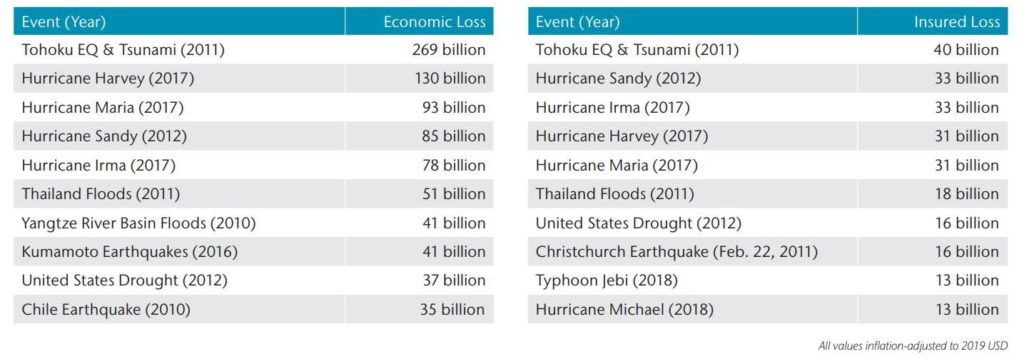
Hurricane Dorian was the strongest hurricane to affect the Bahamas; Tropical cyclone Idai was one of the Southern Hemisphere’s deadliest and costliest tropical cyclones on record; Cyclone Kyarr was one of the strongest cyclones on record in the Arabian Sea (see figure below). Australia last year saw the most intense and destructive fire cycle since 1974.
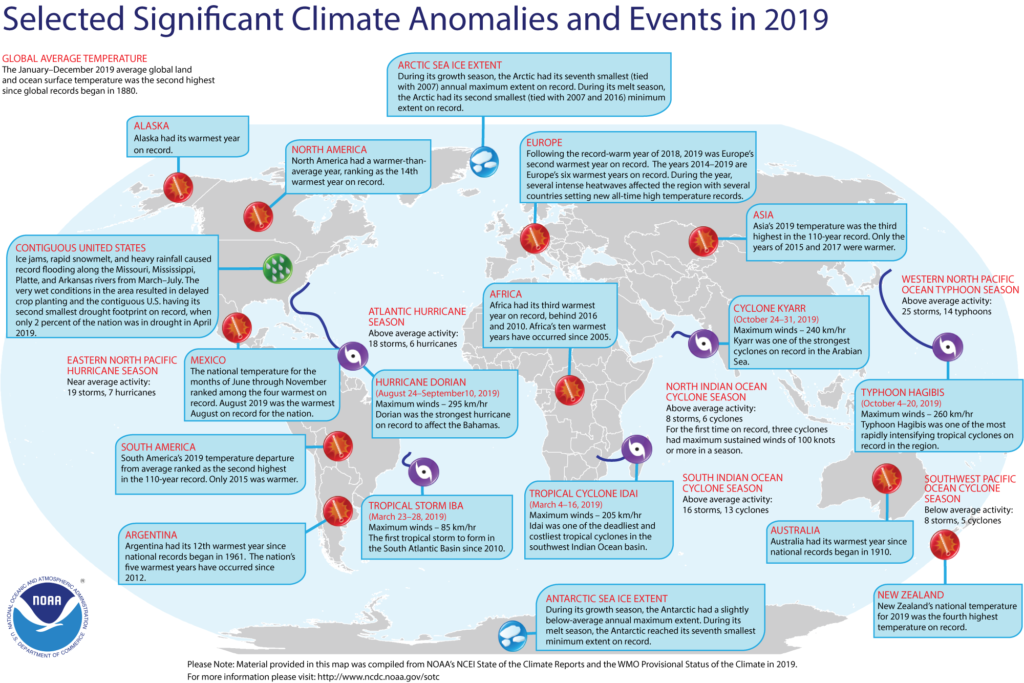
A springboard for the next decade
The one we left behind was also the decade in which climate sciences helped us deepen our understanding of the physical, economic and social aspects of climate change, increasing our ability to foresee the upcoming challenges by understanding the heritage of human influence on the earth system. It was the decade in which climate deniers were proven wrong; in which two comprehensive Assessment Reports and a number of Special Reports were released by the Intergovernmental Panel on Climate Change (IPCC). This is how science has not only made available outstanding scientific evidence, but also reached policymakers and started to support their decisions offering concrete, affordable and feasible solutions to cope with climate change. It was the decade in which the first-ever universal, legally binding global climate agreement was reached under the United Nations Framework Convention on Climate Change (UNFCCC).
While 2019 brought the decade to an end, global awareness and concern for climate change are showing maturity, culminating in the largest climate mobilizations ever promoted by the Fridays for Future movement in late September. And the just-released 2020 edition of the Global Risks Report assesses that climate change and other environmental-related risks climbed, in a ten-year period, to the top of rankings for the most pressing global risks.
On the current path of carbon dioxide emissions, we are heading towards a temperature increase of 3 to 5 degrees Celsius by the end of century
WMO Secretary-General Petteri Taalas
The challenge is huge, but the conditions that this decade has set in terms of awareness and willingness to act are good enough to believe that in the decade to come we will be able to change course, decelerating climate change and its impacts by further accelerating knowledge and action. The Emissions Gap Report shows how important it is to act urgently: to limit global warming to 1.5°C, we need an annual 7.6% emissions reduction between 2020 and 2030. Ten years ago, this percentage would have been 3.3%. In just five years, it would be an almost unattainable 15.4%.


